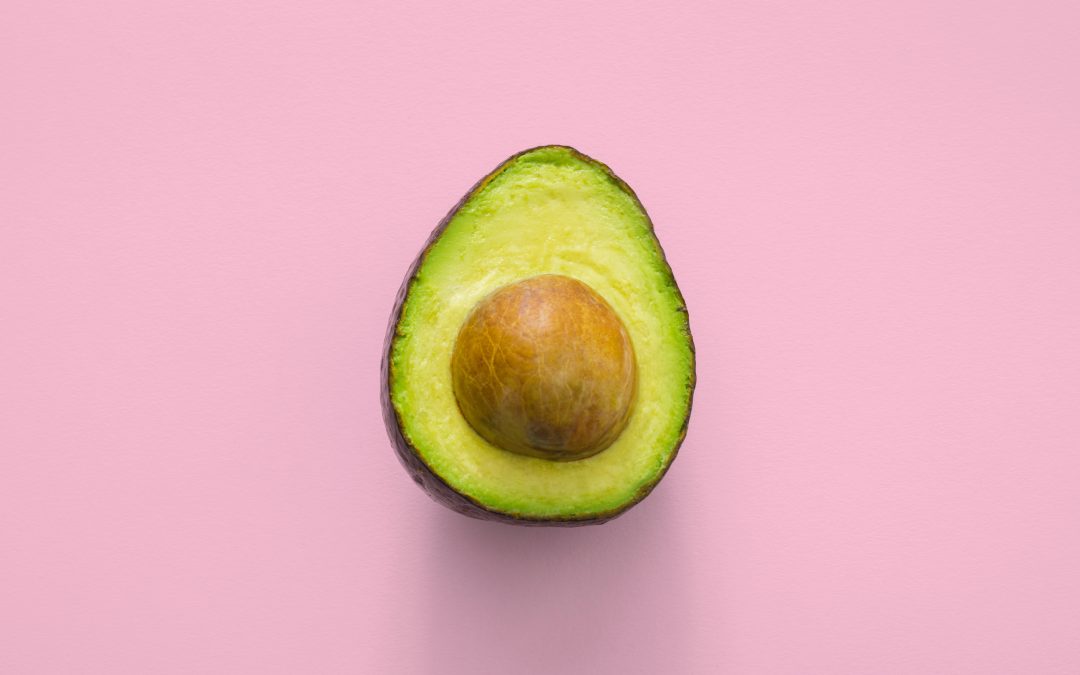Avocados and Gut Health
Avocados are incredibly nutritious. They are a good source of many vitamins and minerals, including potassium, magnesium, iron and zinc. They are rich in both protein and fiber and contain healthy polyunsaturated and monounsaturated vegetable fats. A recent research study has given us some insight that we can now add gut health benefits to the list of the avocado’s health-promoting powers. The study focused on changes to the gut microbiome as a result of eating avocado daily [1]. Specifically, the study concluded that the fats and fiber in avocado positively affect the gut’s microbiome, both in terms of its composition and the functions of the intestinal microbiota, and that this has a positive effect on gut health and health overall.
Daily Avocado Consumption
Daily avocado consumption resulted in a greater abundance of bacteria that break down fiber and produce metabolites that foster gut health. As a result, subjects in the avocado group experienced several benefits, including slightly lower levels of bile acids. These substances are typically released by the gallbladder to assist in fat digestion, but the avocado group absorbed less fat from their diet. This finding is particularly significant for the growing at-risk population of overweight adults who stand to benefit from dietary interventions that can promote weight loss and reduce their risk of related health issues.
Evidence Behind Avocados and Gut Health
Another smaller study funded by the Haas Avocado Board found that the gut microbiota of overweight or obese adults differed in response to an avocado-inclusive diet compared to controls [2]. What the data revealed was that people who consumed an avocado every day for 12 weeks had more abundant gut bacteria, suggesting that the fiber in avocados plays a positive role in gut health. Taken together, avocados are a class of superfood packed with fiber and essential nutrients which help promote healthy digestive function. It’s also a low-fructose food, so it’s less likely to cause gas. However, we need to be wary of portion sizes when it comes to foods like avocados. Although they are rich in nutrients, they are also high in fat, so be sure to eat them in moderation.
References
- [1] Thompson, S. V., Bailey, M. A., Taylor, A. M., Kaczmarek, J. L., Mysonhimer, A. R., Edwards, C. G., Reeser, G. E., Burd, N. A., Khan, N. A., & Holscher, H. D. (2021). Avocado Consumption Alters Gastrointestinal Bacteria Abundance and Microbial Metabolite Concentrations among Adults with Overweight or Obesity: A Randomized Controlled Trial. The Journal of nutrition, 151(4), 753–762. https://doi.org/10.1093/jn/nxaa219
- [2] Henning S, Yang J, Woo S, Lee R, Huang J, Rasmuen A, et al. (2019) Hass Avocado Inclusion in a Weight-Loss Diet Supported Weight Loss and Altered Gut Microbiota: A 12-Week Randomized, Parallel-Controlled Trial. Clin Dev Nutr. 3(8): nzz068. doi:10.1093/cdn/nzz068
- https://nutrition.org/avocado-consumption-feeding-your-gut-microbiota/
- https://www.sciencedaily.com/releases/2020/12/201215175758.htm
- https://www.medicalnewstoday.com/articles/a-new-study-suggests-eating-avocados-daily-for-a-happy-gut
- https://www.hopkinsmedicine.org/health/wellness-and-prevention/5-foods-to-improve-your-digestion
- https://www.goodgutfeelings.com/blog/avocado-and-gut-health
- https://www.verywellhealth.com/eating-avocado-supports-gut-microbiota-5093672






